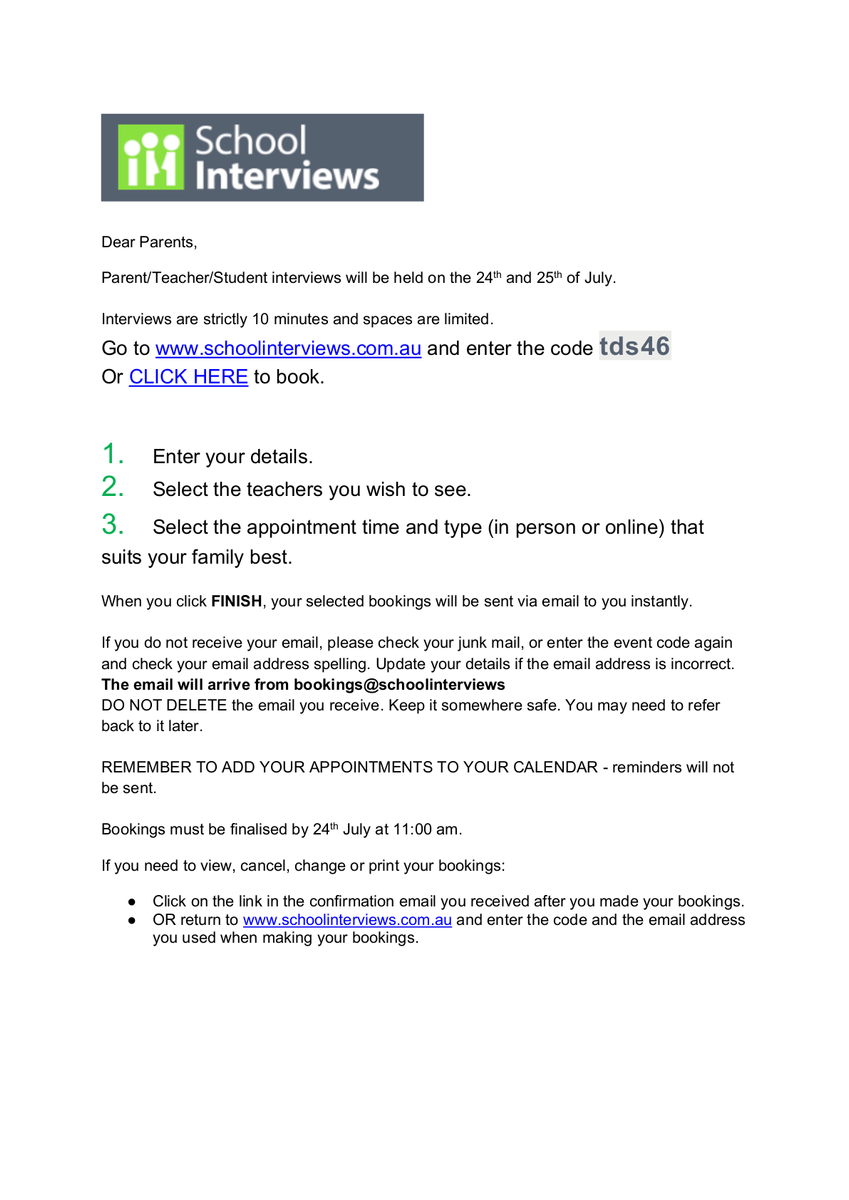Parent - Teacher Interviews

Why it’s important to go to parent-teacher interviews
Parent-teacher interviews give you a great opportunity to:
- learn more about your child’s academic, emotional and social development
- meet and get to know your child’s teachers
- help your child’s teachers understand more about your child
- make plans with the teacher about how you can both support your child
- build a relationship with the school
If you don’t have any particular concerns, you might wonder whether it’s worth going to parent-teacher interviews. But going along is one way to show your child that you’re interested in their learning and what’s happening for them at school.
Of course, if you do have concerns, it’s a chance for you to raise them with your child’s teacher if you haven’t done that already.
Talking with teachers at parent-teacher interviews: tips
Being open and friendly will set you up for positive communication with the teacher. You can show that you respect what the teacher is saying by listening carefully and trying not to become defensive, even if you disagree with feedback about your child.
It’s important to get as much out of the meeting as you can, so it’s OK to be direct when you need to be. For example, you can ask the teacher to explain, clarify or say more if you don’t understand what’s being said.
If you have a concern about something, try to be specific and avoid blame. Combining a request with understanding will usually help. It can also help if you mention something positive at the same time. For example, ‘Freya says that when you explain things it makes it clearer to her. Would you mind if she asked you to take more time to explain when she’s learning something new?’
If you have to discuss problems with the teacher, it helps to come ready with some possible solutions, or at least some positive and practical suggestions. Be willing to listen to the teacher’s ideas too.
If you make any decisions, it’s good to agree on who will follow up and when.
Children are encouraged to attend and lead the discussion about their work.
Reference: https://raisingchildren.net.au

